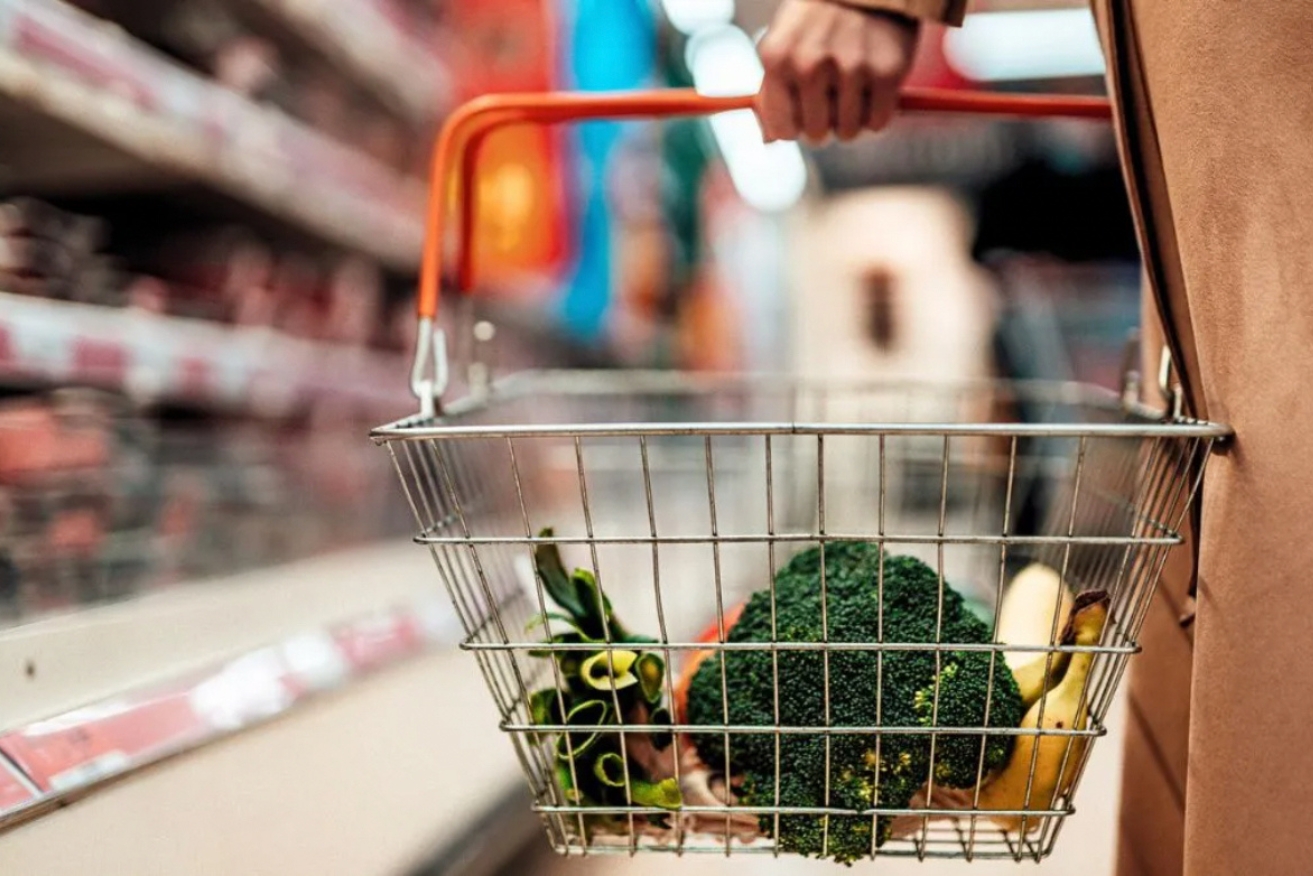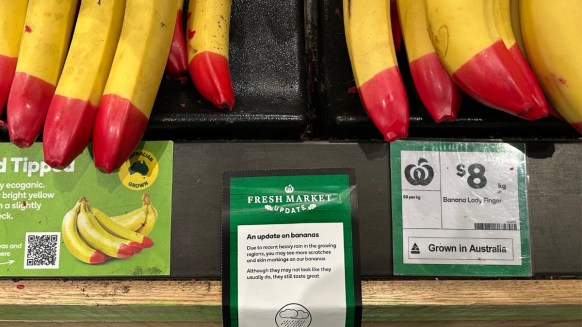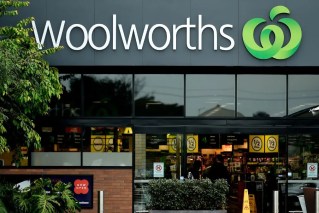Blemishes are in for supermarket produce after cyclones


Shoppers are being told the beauty of fresh produce is not just skin-deep. Photo: Getty
The year is still young, but Queensland has already been hit by severe storms and cyclone weather – and supermarkets are loosening their rigid fresh produce standards to accommodate the after-effects.
After Queensland copped a drenching from Cyclone Jasper and Tropical Cyclone Kirrily over the past few months, eagle-eyed shoppers in cities such as Melbourne noticed some Woolworths stores have placed notices apologising for excessive markings on fresh produce such as bananas and lemons.
“Due to recent heavy rain in the growing regions, you may see more scratches and skin markings on our bananas,” one notice read.
“Although they may not look like they usually do, they still taste great.”

Scuffed bananas are still making it to shelves. Photo: TND
In a statement released last week addressing bananas in Queensland stores, Woolworths said it had introduced signs to educate customers and reassure them about quality after rainfall in North Queensland generated by Cyclone Jasper softened the skin of unpicked bananas on the trees.
A Coles spokesperson said Coles will, at times, “vary specifications” for fresh produce after extreme weather to support suppliers and reduce food waste, as seen in 2022 when the retailer sold packs of two small iceberg lettuce for the price of one.
“We know that the recent weather events in Queensland has seen some impacts and damage to a variety of Queensland-grown products from mangoes, bananas and lemons to baby cos lettuce and green beans,” the Coles spokersperson said.
Farmers for Climate Action CEO Natalie Collard welcomed moves by supermarkets to sell extreme weather-affected produce.
“This is an important education piece because many consumers are conditioned to think apples should not have spots or pears should not have bruises, and much good food is wasted,” she told The New Daily.
“As climate change brings us more extreme weather events, it’s important farmers are able to sell their produce, which is still good to eat, and that good produce does not end up as waste.”
Tonnes of produce wasted
The visual standards imposed on fresh produce is an issue Allambee Organic Farm partner Bob Raabe is familiar with.
For almost four years, the Queensland farmer supplied brushed potatoes sold at Coles via a repackager, but he decided to stop after Coles changed its specifications for potatoes’ minimum weight from 90g per potato to 120g.
Raabe said the “minuscule” change meant 10 per cent of his potatoes failed to make the cut, in addition to the 25 per cent of potatoes that already did not meet minimum and maximum weights and sizes.
The rejected potatoes amounted to about 300 kilograms per tonne grown.
“We basically gave up selling to Coles … because you weren’t getting as much as you were on the wholesale market, so you were losing out there already,” Raabe said.
“And then the gradings and the losses on that, we just thought ‘Well, it’s not worth it’.”
He said Woolworths’ slight loosening of visual standards after Queensland’s heavy rainfall was “better than nothing” for farmers already struggling to stay afloat amid rising production costs and stagnant revenue.
“The reality of it is, the nutritional value wouldn’t be any different, whether [a product’s skin blemish was] big or small, except if that blemish mark would [lead] to it not storing,” Raabe said.
According to OzHarvest, Australia wastes more than 7.6 million tonnes of food every year; more than 2.5 million tonnes of that is from farms and primary producers.
One of the key reasons for dumping fresh produce is not meeting supermarket standards.
The issue has given rise to a start-ups who work with farms to sell ‘imperfect’ produce, and major supermarkets such as Woolworths and Coles compromising by offering imperfect ranges of produce.








